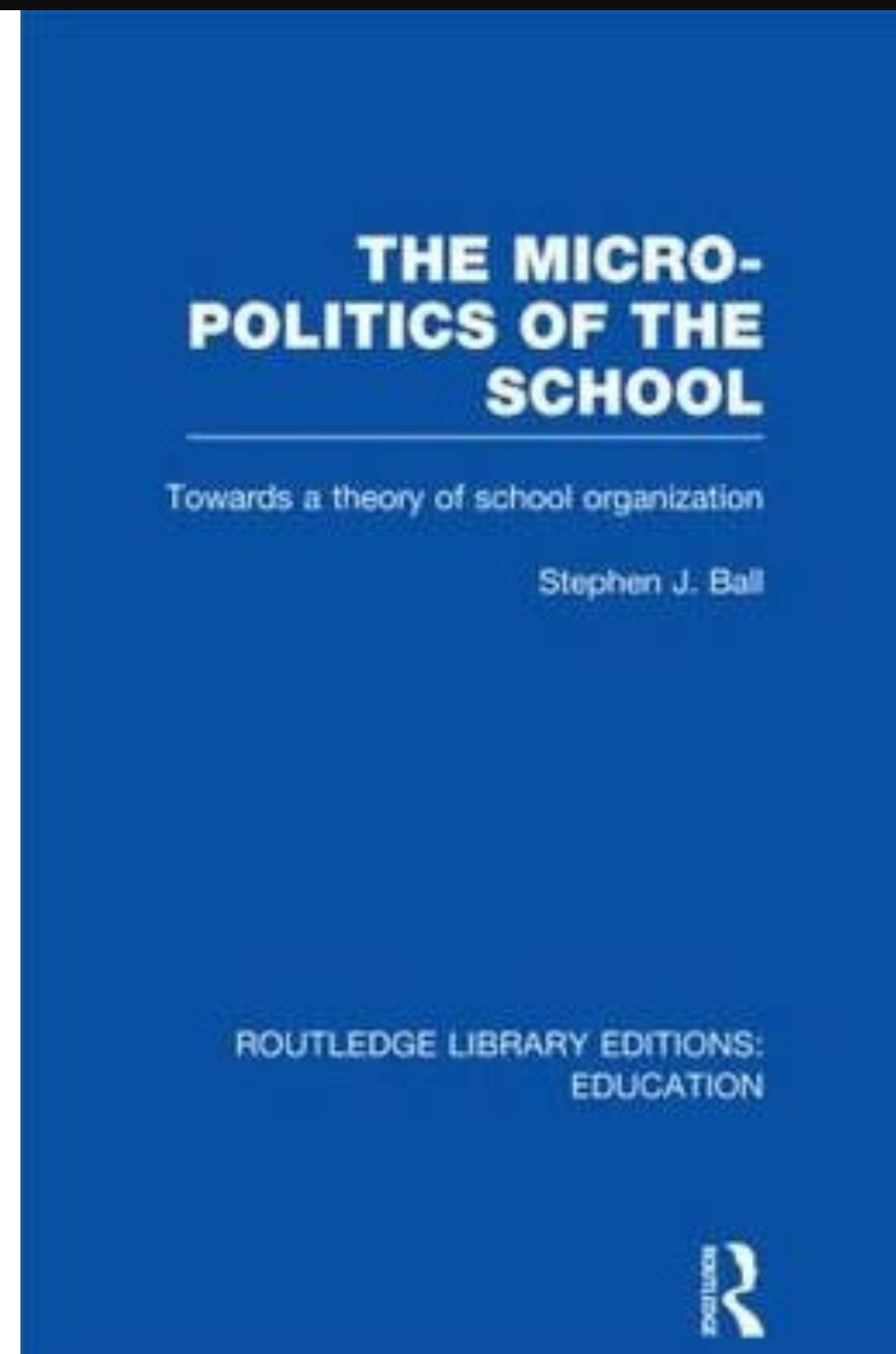The Micropolitics of the school.
By stephen J. Ball
स्कूल के स्पेस में काम करते हुए हम अक्सर इस के अलग-अलग पहलुओं को एक साथ करके नहीं देख पाते हैं। लेकिन कई बार यह सवाल हमारे मन में जरूर आता है कि ऐसा क्यों हो रहा है? ऐसा कैसे हो रहा है। यह सवाल हम भी पूछते हैं और यह सवाल हमसे पूछे भी जाते हैं। इस तरह के सवालों का उत्तर जानने के लिए यह जरूरी होता है कि हम एक हॉलिस्टिक पर्सपेक्टिव डेवलप करें और इस होलिस्टिक पर्सपेक्टिव को डिवेलप करने में मेरे ख्याल से इस किताब से ज्यादा मददगार शायद कोई दूसरी किताब नहीं हो सकती है।
करीब-करीब 1970- 80 के दशक में स्कूलों में काम करते हुए स्टीफन ने यह किताब लिखी है और जब आप इस किताब को पढ़ते हैं तो आपको लगेगा कि जैसे आप अपने ही स्कूल की कहानी को पढ़ रहे हैं। शायद एक बेहतरीन किताब का यह पैमाना होता है कि आप उसे अपने परिवेश से जोड़कर देख सकते हैं। यह एक तरह की एथनॉग्रफिक स्टडी है। एथनॉग्रफि शब्द का इस्तेमाल अक्सर रिसर्च के क्षेत्र में किया जाता है। सामान्य शब्दों में इसका मतलब होता है कि जहां परिवेश का हिस्सा बनकर कोई व्यवस्थित तरीके से वहां के बारे में जानने की कोशिश करता है।
एक संस्था के रूप में स्कूल के बारे में विचार करते हुए वे लिखते हैं
“They are top-dog theories; they contain a view of the organization looking down from the position of those ‘in control’. They are inherently biased and distorted by this partiality. Furthermore, as the requirements and effects of training and consultancy bite, there is the tendency to slip casually from analysis to prescription”

आपने जरूर सुना होगा लोगों को यह कहते हुए कि ‘चलो आज की देहारी पूरी हुई’। यह स्थिति कोई अचानक नहीं हो गई है ब्रिटेन के संदर्भ को ध्यान में रखते हुए स्टीफन लिखते हैं
“Schools at the present time tend to be characterized by a clear sense of ‘them and us’, of management and line, of employer and employee. This is perhaps indicative of what some commentators call the ‘proletarianization’ of teachers, the reduction of teaching from a form of professional practice to a form of mental work focused starkly on the exchange of labour power for wages (see Ch. 10).”
और नीचे के पारा को पढ़ते हुए तो आपको लगेगा कि जैसे स्टीफन ब्रिटेन के किसी स्कूल के बारे में नहीं बल्कि उस स्कूल के बारे में बात कर रहे हैं जिसमें आप पढ़ाते हैं।
“There’s the group that are very sour about the whole thing, they’ve been teaching for a long time, not going any further, they haven’t got degrees on the whole – Scales 2 and 3 and not going anywhere. Spend a lot of time complaining about things. Very hostile to the headmaster. No influence at all in the school, don’t speak up and if they did wouldn’t be listened to [fatalists]. Then there are a group of women who are not interested in promotion and not interested in the way in which the school is run. See teaching as a part-time job, a secondary thing. Talk about their children and knitting patterns and that sort of thing. Again, no influence at all. Very rarely speak at staff meetings unless they have a moan about an individual pupil [apathetics].… And then there’s the main group, made up of the younger, ambitious teachers, not very radical, willing to go along with the school and the way the school is run. Tend to talk about social things rather than educational things.”
इतना पढ़ते हुए आपको इस बात का अंदाजा जरूर लग गया होगा कि बहुत ही मजेदार किताब है स्कूल कैसे एक संस्था के रूप में शिक्षक, अभिभावक, स्थानीय राजनीति इत्यादि के साथ एक अनवरत संवाद में रहता है उसके बारे में विस्तार से लिखा गया है साथ ही स्कूल के अंदर चलने वाली राजनीति का भी बहुत ही मजेदार विवरण है।
कहां से प्राप्त करें इस किताब को
ओपन सोर्स के रूप में यह किताब इंटरनेट पर उपलब्ध नहीं है । बहुत ही महंगा है, ₹3000 के आसपास इसकी कीमत है। वैसे पढ़ने के शौकीन व्यक्ति इसको खरीद सकते हैं,अमेजॉन पर उपलब्ध है।
- Log in to post comments
